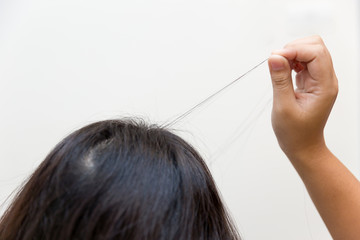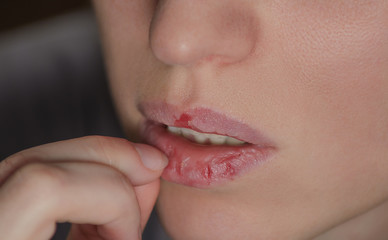Body Focused Repetitive Behaviors: What They Are and How to Address Them
Mariella Arceo
Nov 14, 2022
What are body focused repetitive behaviors?

Some patients engage in these activities to some degree automatically (ie, without complete awareness); others are more conscious of the activity. The behaviors aren't caused by obsessions or concerns about appearance but may be preceded by a feeling of tension or anxiety that is relieved by the behavior, which is often also accompanied by a feeling of gratification. People with body-focused repetitive behavior disorder usually try to stop their behavior or to do it less frequently, but they can't seem to manage it.
In the DSM-5, body focused repetitive behavior is listed in the obsessive compulsive and related disorders section. Below are examples of common BFRBs:
-
Trichotillomania (hair pulling disorder)

- This is an ongoing and repetitive picking of the hair around the face and head, resulting in noticeable hair loss. Other areas that aside from the face and head also include the arms, legs, pubic region, and even other individuals such as pets. These pulling episodes can last between several minutes to hours.
-
Dermatillomania (skin picking disorder/ skin excoriation)

- This involves picking at one's skin obsessively, which may be set off by a scab or other blemish (such as a mosquito bite or pimple), tearing open or worsening a skin wound. The typical sites are the face, arms, and hands, although any body part can be involved – for example, the legs and pubic area where ingrown hairs might occur more often. Skin picking episodes can also last between several minutes to hours.
Onychophagia (nail biting)

How do you treat BFRB?
Fortunately, there are a number of ways to address these bad habits such as:
Cognitive-behavioral therapy (CBT) is one type of treatment that can be effective for BFRB. CBT can help you to understand the thoughts and emotions that are associated with your BFRBs, and to develop new, healthier coping strategies.
Habit reversal training (HRT) is another treatment option that can be helpful for BFRB. HRT involves learning to become aware of the behaviors and triggers associated with your
BFRBs, and developing new, healthier coping strategies. This method consists of awareness training that compels the individual to be more aware of when the behaviors will most likely occur as they focus on their circumstances and social support that involves family members and loved ones to give positive feedback.
Another approach that may be worth trying is acceptance and commitment therapy, which encourages individuals to experience their negative behaviors in order to observe without judgement. The knowledge that you don't have to act on every urge or emotion can be liberating.
Medication may also be an option for treating body-focused repetitive behaviors. Selective serotonin reuptake inhibitors (SSRIs) are a type of antidepressant that can be effective in treating BFRBs.
If you are struggling with body focused repetitive behaviors, don't hesitate to seek help. There are a number of effective treatments available, and with the right support, you can learn to manage your BFRBs. If you or someone you know might benefit from the help of licensed professional therapists, do not hesitate to reach out at mosaicmindscounseling.com